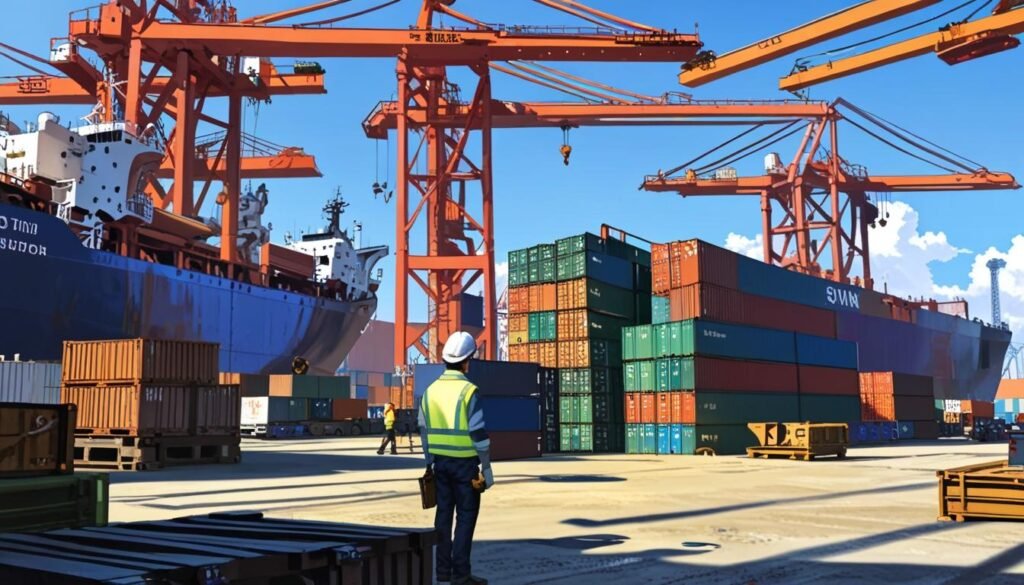**UK**: The Construction Leadership Council warns that US tariffs on Chinese steel may lead to substandard steel entering the UK market, prompting price volatility and supply chain challenges while urging the industry to improve collaboration and forecast demand amid ongoing global trade disruptions.
The Construction Leadership Council (CLC) has issued a warning regarding the potential impact of US steel tariffs on the UK construction industry, cautioning that these tariffs may prompt substandard Chinese steel to be diverted into the UK market. This concern was articulated in a joint statement by John Newcomb, chief executive of the Builders Merchants Federation, and Peter Caplehorn, chief executive of the Construction Products Association, reflecting input from the CLC’s Material Supply Chain Group.
The group is closely monitoring how the 25 per cent tariff imposed by the United States on Chinese steel imports could influence global steel trade flows. In particular, they highlighted the risk that steel originally destined for the US market might be redirected to Europe, including the UK. The statement emphasised that while such a shift might lead to temporary steel price reductions, the overriding priority remains the assurance that all imported materials comply with safety standards and quality requirements.
As of now, the UK has not observed instances of steel dumping; however, measures have been implemented to stabilise prices and regulate import volumes, with quotas introduced as part of this effort. The statement also noted emerging signs of price pressures within the steel sector and revealed that disruptions in global shipping logistics—such as vessels held in ports or rerouted cargoes—are being tracked, although these disruptions have yet to produce direct impacts on the UK construction supply chain.
The broader implications of US tariff adjustments on other construction materials remain uncertain. Nonetheless, industry leaders voiced concerns that such economic destabilisation could reduce both consumer and business investment, resulting in increased volatility in material costs as well as potential contract delays or the need for renegotiations of fixed-price agreements.
Regarding current material pricing trends, most predicted increases of 3 to 7 per cent outlined earlier this year have come into effect. Noteworthy exceptions include PIR insulation, whose prices have risen by 10 per cent, and continuing irregularities in pricing for CLS timber and ironmongery products. Although material availability nationally is generally stable, certain regions have encountered shortages of specific products including aircrete, insulation blocks, and timber items such as CLS, carcassing, and battens.
Anticipating potential growth in the construction sector in the coming months, the CLC encouraged the industry to strengthen collaboration across supply chains. Contractors and clients were urged to forecast their material demands accurately and engage promptly with suppliers and merchants to mitigate risks and ensure timely production and delivery.
This statement from the CLC Materials Supply Chain Group reflects ongoing efforts to manage emerging challenges posed by global trade shifts and logistical uncertainties within the UK construction sector.
Source: Noah Wire Services





